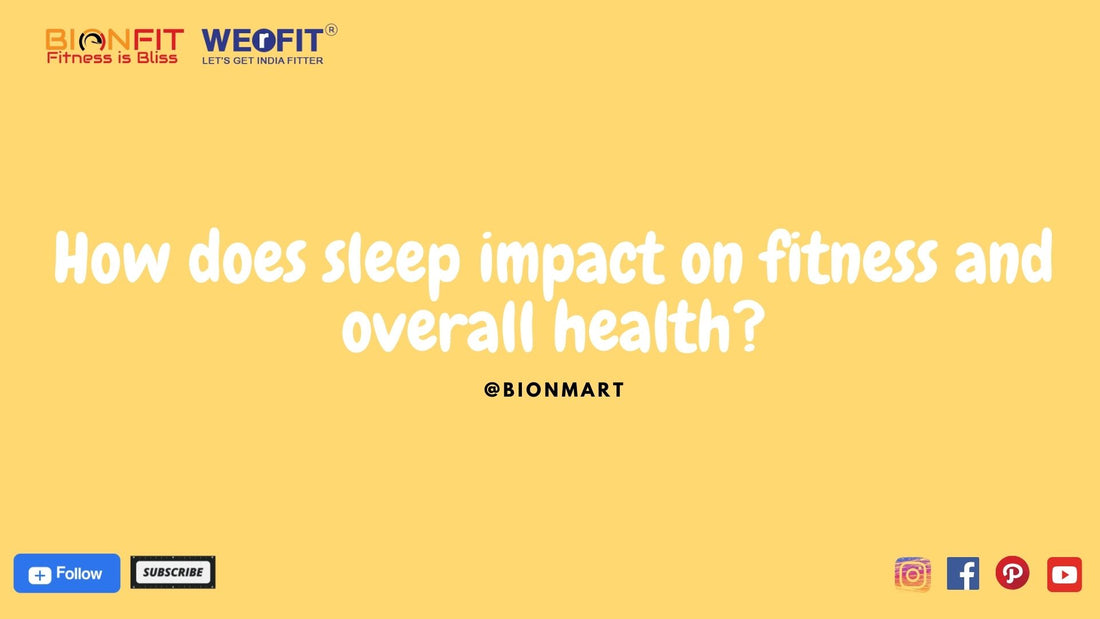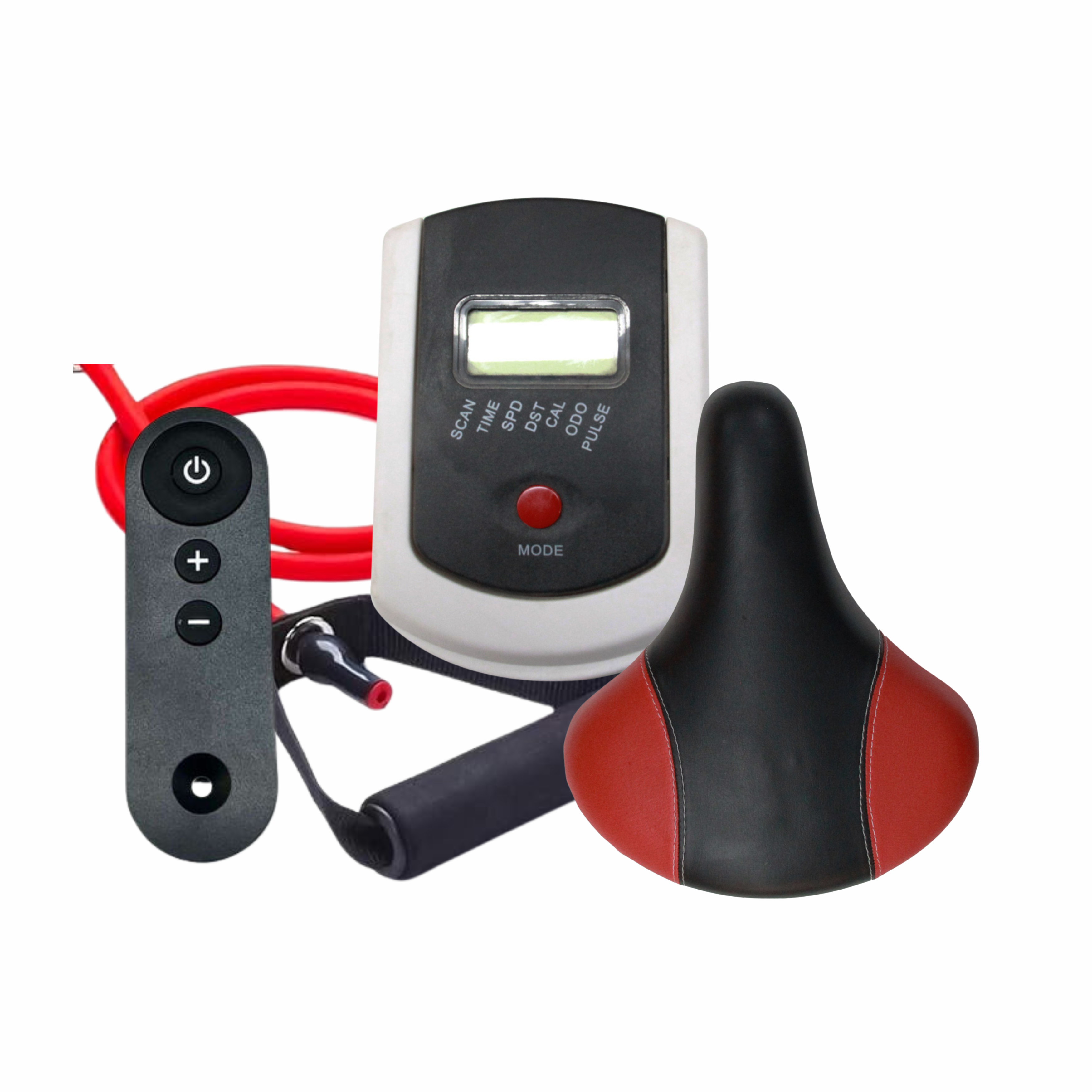
How does sleep impact on fitness and overall health?
Sleep is a cornerstone of good health, yet it's often overlooked in our fast-paced lives. We prioritize work, social activities, and even screen time over a good night's rest, but this neglect can have serious repercussions. In this article, we'll explore how sleep impacts both fitness and overall health, shedding light on why you should never skimp on those precious hours of shut-eye.
Understanding Sleep
What is Sleep?
Sleep is a natural, reversible state of rest characterized by reduced interaction with the surroundings and decreased physical activity. It's essential for numerous physiological processes, including growth, immune function, and brain function.
Stages of Sleep
Sleep occurs in cycles, each consisting of various stages:
REM Sleep
Rapid Eye Movement (REM) sleep is when most dreaming occurs. It's crucial for cognitive functions like memory consolidation and emotional regulation.
Non-REM Sleep
Non-REM sleep includes three stages:
- Stage 1: Light sleep, where you drift in and out of sleep.
- Stage 2: Slightly deeper sleep, where the body begins to prepare for deep sleep.
- Stage 3: Deep sleep, crucial for physical repair and growth.
The Connection Between Sleep and Fitness
Sleep and Muscle Recovery
During deep sleep, the body repairs tissues, including muscle fibers broken down during exercise. Growth hormone, vital for muscle recovery and growth, is predominantly released during this stage.
Impact on Athletic Performance
Adequate sleep enhances athletic performance by improving reaction times, accuracy, and overall energy levels. Sleep deprivation, on the other hand, can lead to slower recovery times and decreased performance.
Sleep and Physical Endurance
It is crucial for maintaining stamina. Well-rested individuals can endure longer and more intense physical activity compared to those who are sleep-deprived.
Sleep's Role in Mental Health
Sleep and Cognitive Function
Good sleep boosts cognitive functions, such as learning, problem-solving, and decision-making. Lack of sleep impairs these abilities, leading to difficulties in concentration and memory.
Influence on Mood and Stress Levels
Poor sleep can result in irritability, anxiety, and depression. Quality sleep helps regulate mood and reduce stress, promoting emotional well-being.
Sleep Disorders and Mental Health
Chronic sleep disorders like insomnia and sleep apnea are closely linked to mental health issues, exacerbating conditions such as depression and anxiety.
Sleep and Metabolic Health
How Sleep Affects Metabolism
Sleep regulates hormones that control hunger and satiety, such as leptin and ghrelin. Poor sleep disrupts these hormones, leading to increased appetite and potential weight gain.
Sleep Deprivation and Weight Gain
Lack of sleep is associated with a higher risk of obesity. Sleep-deprived individuals tend to consume more calories and have a preference for high-fat, high-sugar foods.
Hormonal Balance and Sleep
Sleep helps maintain the balance of hormones like cortisol and insulin, crucial for stress management and blood sugar regulation, respectively.
The Immune System and Sleep
Strengthening the Immune Response
Sleep enhances the body's immune function, helping it fight off infections more effectively. During sleep, the body produces cytokines, which aid in fighting infections and inflammation.
Sleep and Illness Prevention
Adequate sleep reduces the likelihood of getting sick. People who don't get enough sleep are more susceptible to common colds and other infections.
Recovery from Illness
Sleep aids recovery from illnesses. When sick, your body demands more sleep to bolster the immune system and accelerate healing.
Common Sleep Disorders
Insomnia
Insomnia, the inability to fall or stay asleep, affects millions and can lead to significant health problems if not addressed.
Sleep Apnea
Sleep apnea, characterized by interrupted breathing during sleep, can lead to severe health issues like cardiovascular disease if untreated.
Restless Legs Syndrome
Restless Legs Syndrome (RLS) causes uncomfortable sensations in the legs, leading to an irresistible urge to move them, disrupting sleep.
Improving Sleep Hygiene
Establishing a Sleep Routine
A consistent sleep schedule helps regulate your internal clock, making it easier to fall asleep and wake up.
Creating a Sleep-Friendly Environment
Your sleep environment should be dark, quiet, and cool. Invest in a comfortable mattress and pillows.
Diet and Sleep
What you eat and drink can affect your sleep. Avoid heavy meals, caffeine, and alcohol before bed.
Exercise and Sleep
How Exercise Affects Sleep Quality
Regular physical activity can help you fall asleep faster and enjoy deeper sleep. However, timing is key.
Best Times to Exercise for Better Sleep
Exercise in the morning or afternoon. Avoid vigorous activity close to bedtime as it can interfere with sleep.
Overtraining and Sleep Disruption
Overtraining can lead to poor sleep quality and insomnia. Balance your exercise routine to ensure it supports rather than hinders your sleep.
Technology and Sleep
Impact of Screen Time
Exposure to screens before bed can interfere with your sleep. The blue light emitted by phones, tablets, and computers disrupts melatonin production.
Blue Light and Sleep Disruption
Blue light suppresses the release of melatonin, a hormone that regulates sleep-wake cycles, making it harder to fall asleep.
Managing Technology for Better Sleep
Limit screen time in the hour before bed. Consider using blue light filters or "night mode" settings on your devices.
Nutrition and Sleep
Foods that Promote Better Sleep
Foods rich in tryptophan, magnesium, and melatonin, such as nuts, seeds, and bananas, can improve sleep quality.
Caffeine and Alcohol Impact
Caffeine and alcohol disrupt sleep patterns. Avoid these substances several hours before bedtime.
Timing of Meals
Eating large meals close to bedtime can cause discomfort and indigestion, disrupting sleep. Aim for lighter evening meals.
Sleep Across the Lifespan
Needs for Different Age Groups
Sleep requirements vary by age. Newborns need the most sleep, while adults require 7-9 hours per night.
Changes in Sleep Patterns with Age
As we age, sleep patterns change. Older adults may experience lighter sleep and more frequent awakenings.
Addressing Age-Related Sleep Issues
Older adults should prioritize sleep hygiene and seek medical advice if they experience significant sleep disturbances.
Sleep and Chronic Conditions
Sleep and Diabetes
Poor sleep can affect blood sugar control, increasing the risk of type 2 diabetes.
Cardiovascular Health and Sleep
Lack of sleep is linked to higher risks of heart disease, high blood pressure, and stroke.
Sleep and Chronic Pain
Chronic pain can disrupt sleep, and poor sleep can exacerbate pain, creating a vicious cycle.
Tips for Better Sleep
Practical Tips for Improving Sleep Quality
Maintain a regular sleep schedule, create a restful environment, and manage stress.
Relaxation Techniques
Techniques like deep breathing, meditation, and progressive muscle relaxation can help you unwind before bed.
Professional Help and Resources
If you struggle with sleep despite trying these tips, consider seeking help from a sleep specialist.
Conclusion
Sleep is integral to our fitness and overall health. It impacts everything from muscle recovery and athletic performance to mental health and immune function. By prioritizing good sleep hygiene and addressing any sleep disorders, you can significantly improve your well-being and quality of life.
FAQs
How Much Sleep Do I Need?
- Adults typically need 7-9 hours of sleep per night, though individual needs can vary.
Can Napping Compensate for Poor Nighttime Sleep?
- Naps can help alleviate sleepiness but aren't a substitute for a full night's sleep. Aim for short naps to avoid disrupting your nighttime sleep.
How Does Sleep Impact Weight Loss?
- Good sleep supports weight loss by regulating hunger hormones and preventing late-night snacking.
What Are the Best Practices for Overcoming Insomnia?
- Establish a regular sleep routine, create a comfortable sleep environment, and limit caffeine and screen time before bed.
How Does Sleep Quality Change with Age?
- Sleep can become lighter and more fragmented with age. Prioritizing sleep hygiene and addressing health issues can help improve sleep quality in older adults.
Follow us for more updates.










